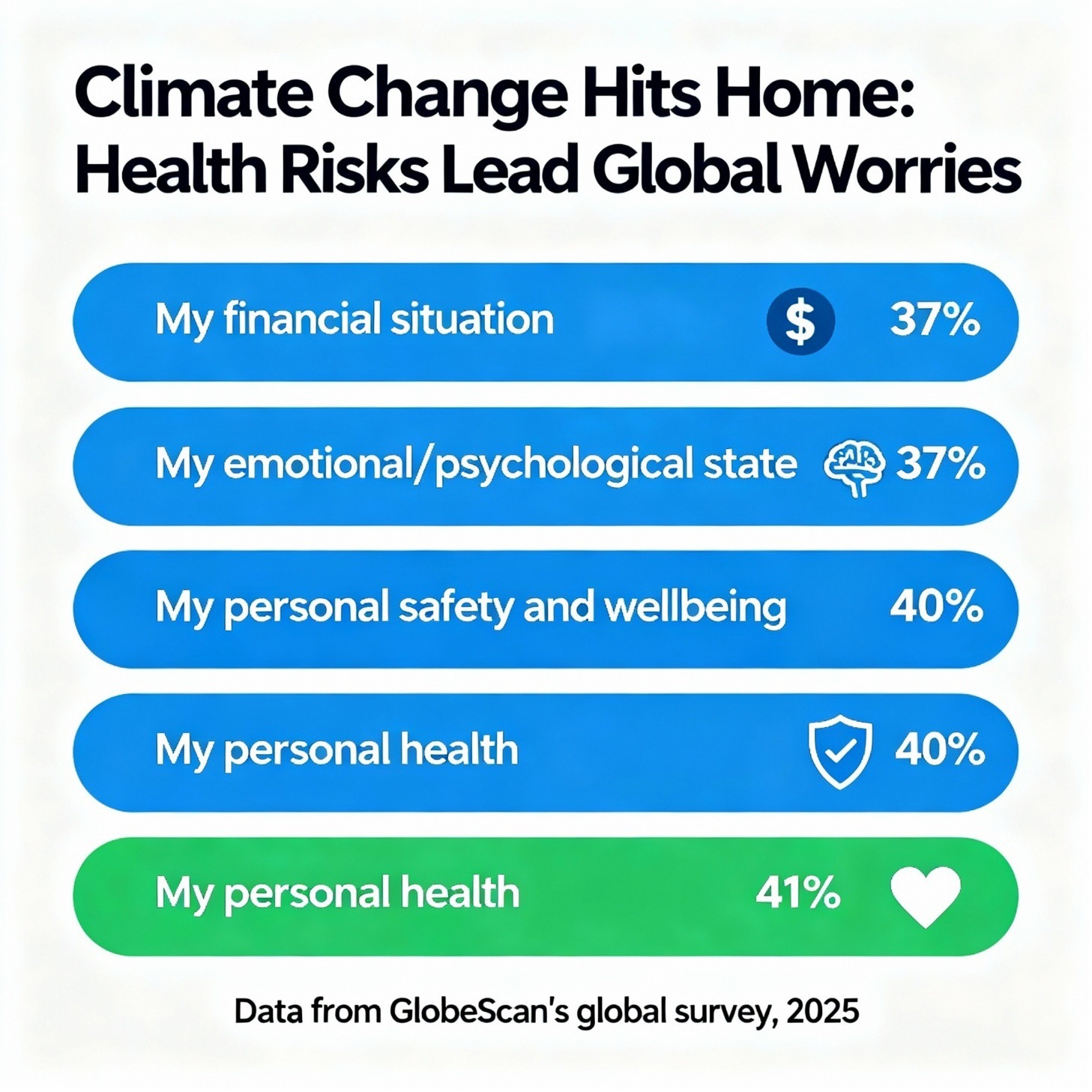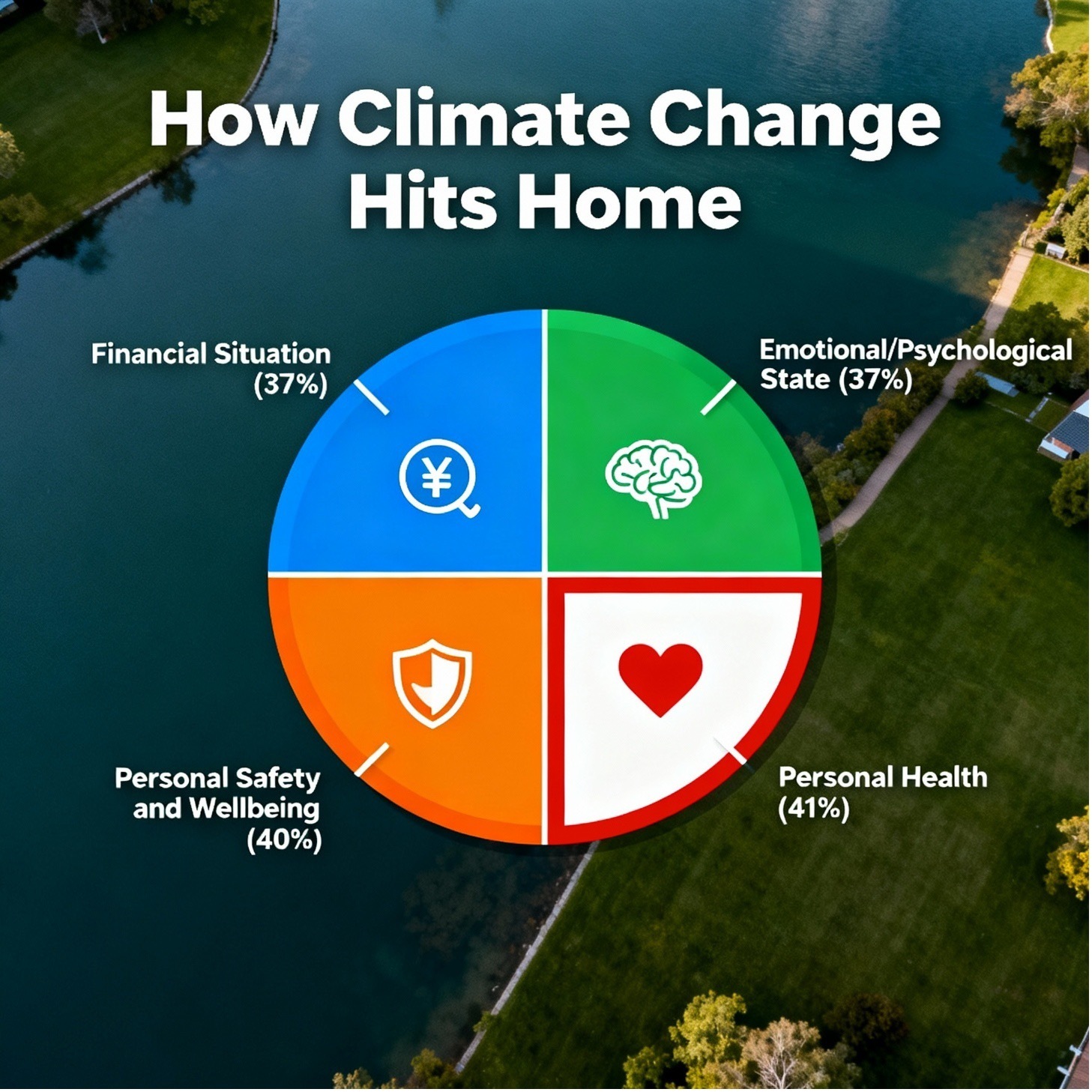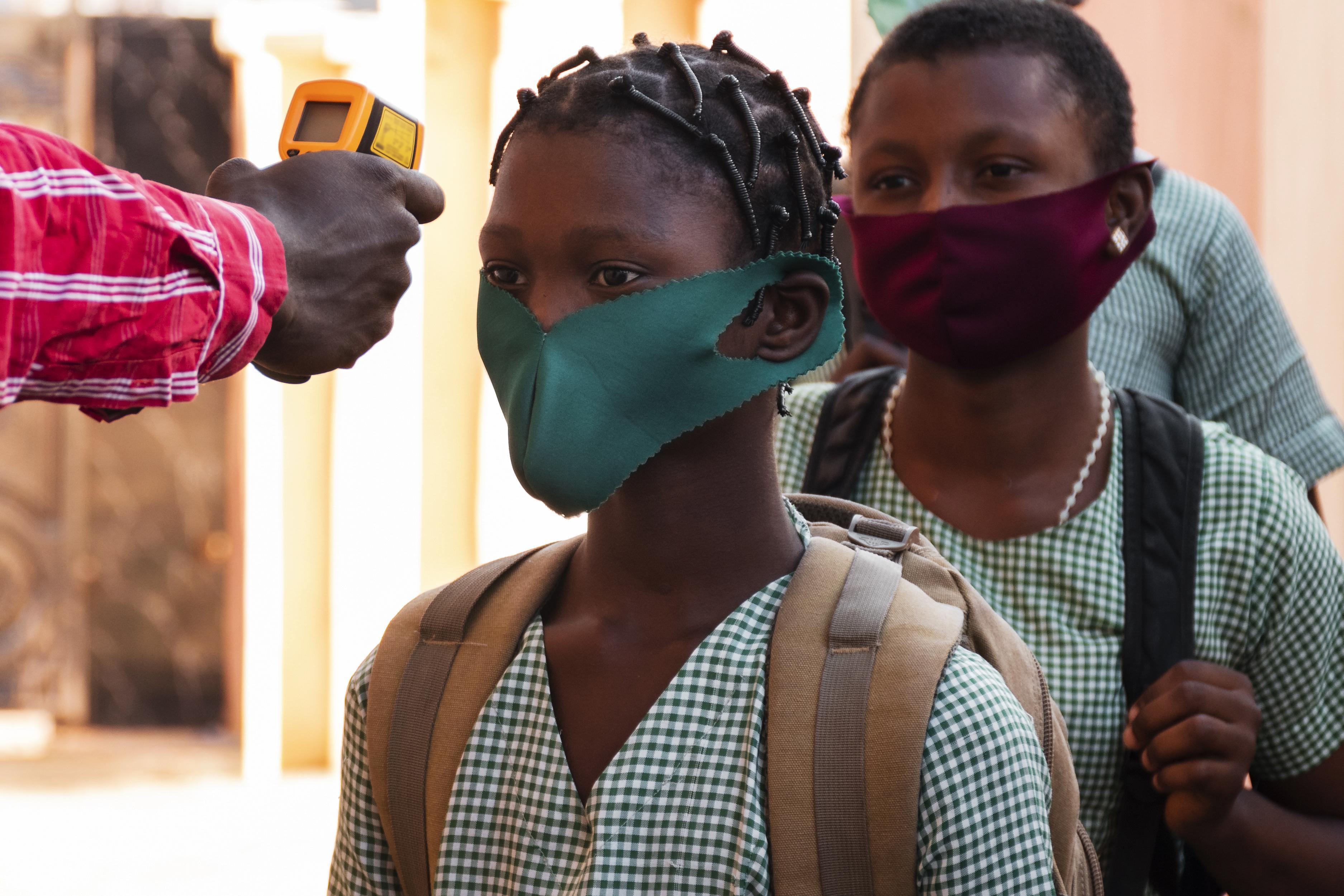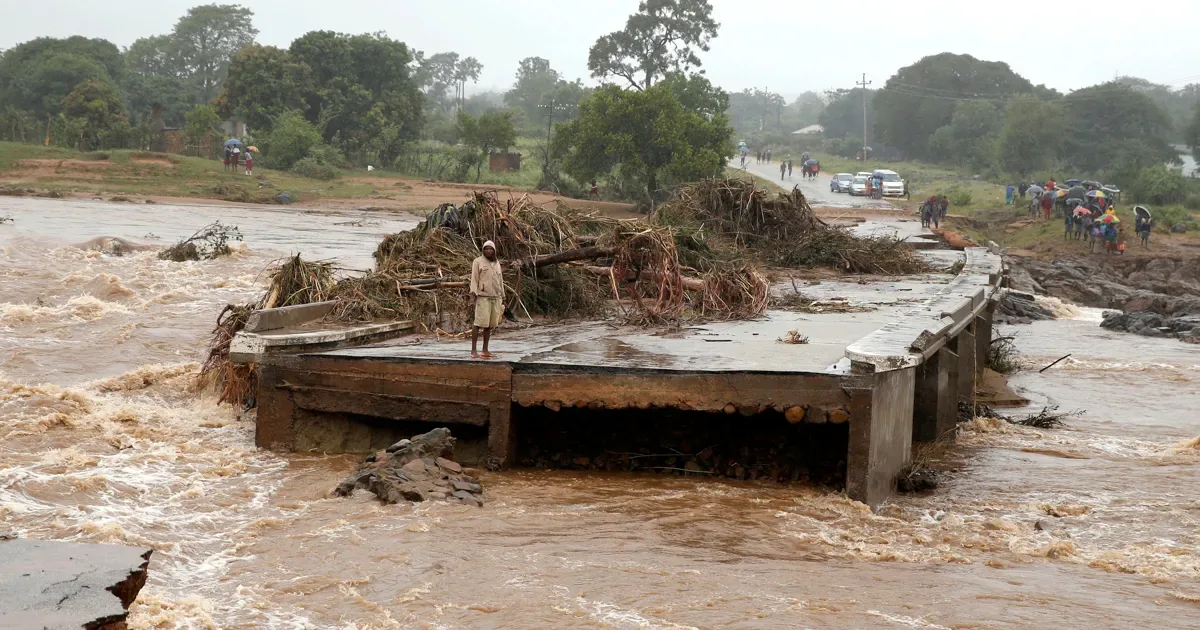A new GlobeScan global survey reveals that nearly half of the world's population (45%) believes climate change will harm their personal health within five years.
The findings highlight a crucial shift in public perception: climate change is no longer viewed solely as an environmental or financial issue, but as a human one that affects health, safety, and psychological well-being.
Health at the Heart of Climate Concern
Public anxiety about climate change has shifted sharply toward health concerns. According to GlobeScan's Societal Shift study, 45% of respondents across 33 countries believe that their health will worsen because of climate change, making it the top personal concern.
Only 37% cite negative financial effects, revealing that climate fears is increasingly becoming more about body and mind, and less about economics and finance.
When Climate Becomes Personal
Health has become the most relatable entry point for climate engagement. It deepens public urgency but also offers a more empathetic narrative, which connects pollution, disease, and wellbeing.

This personal connection opens new pathways for action. Stemming from local threats, which include heatwaves, floods, and disease outbreaks, public demand is intensifying for climate policies tied to public health systems.
From Distant Threat to Daily Reality
The shift toward health concern continues to show how climate disruption is now felt locally, in the air people breathe and the water they drink.
This personal connection opens new pathways for action. Stemming from local threats, which include heatwaves, floods, and disease outbreaks, public demand is intensifying for climate policies tied to public health systems.

Reframing Climate Action as Health Action
People want solutions that protect both livelihoods and health. Framing climate action as a public health strategy can expand public support, transforming awareness into community-led adaptation projects.
Actions such as reducing air pollution, promoting resilient urban design, and expanding clean energy access are increasingly viewed as essential to safeguarding wellbeing.
From Awareness to Collective Healing
Public and Private sectors must now collaborate in co-creating systems that combine sustainable development with health care and resilience.
Investing in healthcare services, climate adaptation infrastructure, and mental health support will become critical to building community trust, transparency, fairness and capacity for change. The conversation must evolve from environmental stewardship to human-centred sustainability.
Path Forward: Health as the New Climate Metric
Prioritising health in climate policy can accelerate global progress toward fairness and urgency. When the focus shifts from abstract targets to clean air, disease prevention, and resilient communities, climate action becomes tangible and deeply human.
By creating more people-centric eco-systems, which translates to visible outcomes, which include fewer illnesses, safer environments, and stronger safety nets, climate resilience transforms from policy rhetoric into lived reality.
It will start to bridge global ambition with everyday wellbeing, showing that protecting the planet is inseparable from protecting people.













